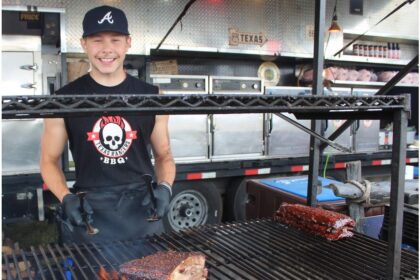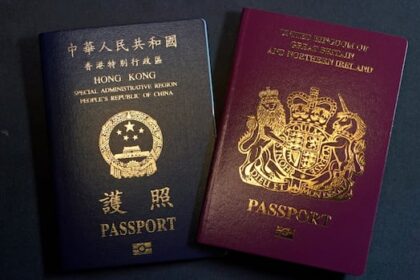British ColumbiaFollowing an attack on a school group on British Columbia’s Central Coast, the B.C. Wildlife Federation is calling on the province to consider lifting the ban on hunting grizzly bears — but not everyone is convinced.B.C. Wildlife Federation claims grizzly-human conflicts are up, but others say attacks like this are rareJon Azpiri · CBC News · Posted: Nov 22, 2025 2:52 AM EST | Last Updated: 7 hours agoListen to this articleEstimated 5 minutesThe audio version of this article is generated by text-to-speech, a technology based on artificial intelligence.A July 6, 2011 file photo shows a grizzly bear roaming near Beaver Lake in Yellowstone National Park, Wyo. (Jim Urquhart/The Associated Press)An attack on a school group on British Columbia’s Central Coast has renewed conversations about the province’s ban on hunting grizzly bears. B.C. banned grizzly bear hunting at the end of 2017 with the exception of hunting by First Nations for food, social and ceremonial purposes. The move to end a practice that attracted trophy hunters came after the provincial government held public consultations which, it said, found that the grizzly hunt was not in line with the values of B.C. residents.On Friday, eight years after the ban started, the B.C. Wildlife Federation (BCWF) said that reports of grizzly-human conflicts have since risen dramatically. “With no hunting pressure, grizzlies and humans will increasingly occupy the same spaces with inevitable consequences,” said Jesse Zeman, the non-profit’s executive director, in a news release.BCWF’s statement came a day after a grizzly bear attack involving students in Bella Coola, B.C., that left two people critically injured and two others seriously hurt, according to emergency officials. WATCH | Grizzly bear attack in Bella Coola, B.C.:Grizzly bear attack on elementary students, teachers leaves 4 in hospitalA grizzly bear attack involving a group of students and teachers in Bella Coola, B.C., has left two critically injured and two others seriously hurt, according to emergency officials. Officials praised teachers for heroically protecting the elementary students.Insp. Kevin Van Damme of the B.C. Conservation Officer Service (BCCOS) said such an attack is “extremely rare.”The executive director of the Grizzly Bear Foundation, a charity dedicated to the welfare of grizzly bears, was critical of the BCWF, accusing it of using “incendiary” language in the wake of the attack. He said such attacks are rare, and grizzlies are a keystone species that play a key role in the ecosystem. B.C. Environment Minister Tamara Davidson said Friday that the RCMP and the BCCOS are working to locate the bear.When asked if the province is considering lifting the ban on the grizzly bear hunt, she said “not at this time.”Prior to the ban, the province issued 250 grizzly hunting licences per year, amid the then-estimated grizzly population of 15,000.The BCWF claims that in the 10 years before the 2017 ban, the BCCOS received 300 to 500 calls per year about grizzly conflict. Since the ban, it claims there are 1,000 calls annually. Nicholas Scapillati, the Grizzly Bear Foundation’s executive director, said the number of calls around human-grizzly conflicts can “fluctuate,” and noted the BCCOS may be receiving more calls due to its creation of a toll-free tip line.The fact that more calls are being received, he said, “doesn’t necessarily mean there’s more conflicts.” He also noted that the definition of a “conflict” is broad, and can include something like a bear breaking into a bird feeder or a freezer. He echoed Van Damme’s comments that attacks like the one in Bella Coola are “extremely rare.”The B.C. Conservation Officer Service say grizzly attacks like the one in Bella Coola are extremely rare. (Harman/CBC)Earlier this month, Alberta’s Minister of Forestry and Parks said “all options are on the table” for managing the province’s bear population — including lifting a ban on hunting grizzlies — following a grizzly bear mauling in Cochrane, Alta.While Alberta has had a ban on hunting grizzly bears since 2006, it introduced the Wildlife Management Responder Network program last year to allow “problem” grizzlies to be hunted. The program’s pool of “grizzly responders” consists of qualified hunters.Other bear attacks in B.C. this yearThe Bella Coola attack is the latest in several recent human encounters with the animals in B.C.A pair of hikers were injured when they were attacked by a bear in October around the McGregor Mountain area, northeast of Prince George.Just 10 days earlier, a hunter was attacked by a grizzly in the East Kootenay region and died in hospital more than three weeks later.A couple riding electric bikes along the Kootenay River near West Creston was also attacked in July by two bears, with one rider suffering significant injuries.Zeman says the BCWF hears from people in communities like Creston in B.C.’s East Kootenay who say they’re seeing bears that are “more bold” than in the past. “I think it would be really important for the province to engage with people who live in rural B.C. and who interact with grizzly bears and get their feelings on what’s going on in the landscape, because it is very different,” Zeman said.Scapillati says the ban should remain in place. “Attacks happened when there was a hunt … You can’t use hunting as a management tool and expect it will reduce these attacks,” he said. Tourism around grizzly bear viewing is an economic driver, he said, and the animals are a keystone species. “They’re one of the reasons we have big forests and healthy salmon runs because bears are transferring nutrients, into these forests, in these ecosystems.”ABOUT THE AUTHORJon Azpiri is a reporter and copy editor based in Vancouver, B.C. Email him with story tips at jon.azpiri@cbc.ca.Follow Jon Azpiri on TwitterWith files from Johna Baylon, Laura Vanderdeen, Rukhsar Ali and The Canadian Press
In the wake of Bella Coola bear attack, some call for B.C. to revisit ban on grizzly hunt











